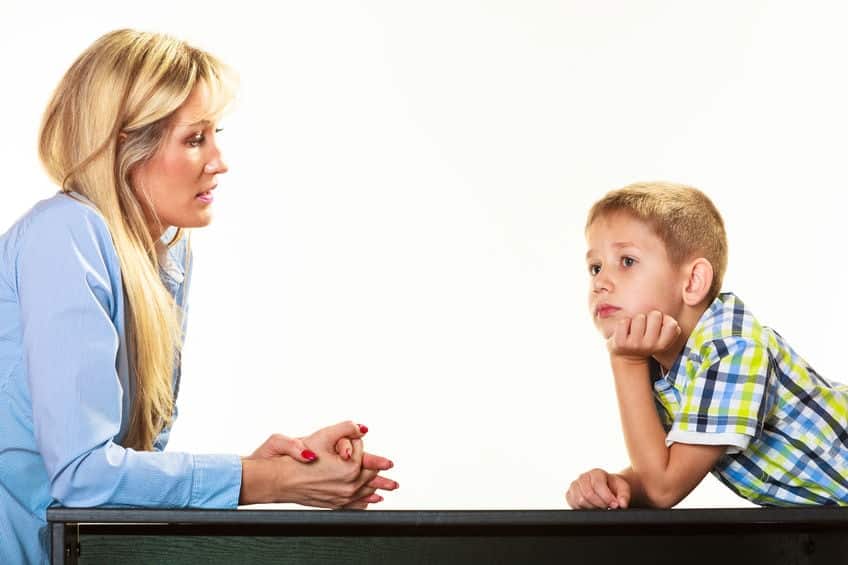How to Teach Your Child to Stop Hitting

It’s alarming to see your child hit their playmate, and shocking to feel a toddler’s slap. As upsetting as it is, especially if your little one hits frequently, stay calm. You’re not alone. Most parents know exactly what you’re experiencing. Nobody is happy when it’s their child disturbing peaceful play dates. Thankfully, hitting usually stops as parents model better skills to help their children cope with frustration. Here’s how to teach your child to stop hitting, at the toddler and preschooler stages.
How to Stop Toddler from Hitting
In order to help a child stop hitting, consider the reasons behind their actions. Toddlers 2 and under typically hit out of fear, as a reaction to stimuli, or just to experiment.

Calm Their Fears
We are hard-wired to fend off anything that’s seen as a threat. Fight-Flight-Freeze is a built-in survival response protecting us from danger, real or imagined. When fear elicits a fight reaction in toddlers, their response might be hitting, pushing, or other seemingly aggressive actions. Stay close to your toddlers in new environments. Reassure them as they explore. Watch for signs of uncertainty, and remind them that you’re right there, looking out for their needs.
If you miss the cues, and your toddler hits someone, make sure the other child is okay and has a parent or caretaker to help calm them. Then, gently reassure and calm your child. Remind them of a good boundary, such as, “We use gentle hands with our friends.” Have a Time In with your toddler, staying close and calm, to help them regulate their big feelings and emotions before they are ready to return to the group.
Redirect Those Hands
Toddlers may hit as a reaction to overstimulation, or whack at another child who has hit them first. In these situations, redirect any would-be hits toward nonviolent action, such as petting a stuffed animal or knocking down a wooden block tower. If an environment is too overwhelming, find another place to play; avoid triggers that lead to hitting.
Model Gentle Touch
Toddlers might start hitting as an outlet for their frustration or to see what will happen when they hit. They learn to calm the urge to hit from adult caretakers modeling gentle touching. For example, if your child hits you when you take something away, you might gently pat their arm and show how to softly pat where they hit you. If they’re able to listen, say:
“Look how gently I’m patting your hand. Can you pat Mommy’s hand so gently, too? Thank you. We use gentle hands in our family.”
With patience and consistency, you can stop a toddler from hitting.
Teach Your Child to Stop Hitting: Preschoolers
Because preschoolers (ages 3-5) have more vocabulary and better understanding, you can use a little more vocal direction with them than when you’re working with toddlers. Preschoolers also learn primarily from examples modeled in everyday life. They shouldn’t have to see adults or older children hitting others. They should frequently observe adults working together calmly, without frustration.
Usually, preschoolers quickly outgrow the hitting stage. But if hitting persists, try these tips.
Help Them Regulate
Frequently, preschoolers hit because they can’t control their impulses. Impulse control might be impaired by unrelated factors, such as exhaustion. It’s much easier for little ones to behave well when all their basic needs are met. Make sure your child is getting adequate rest, proper nutrition, and timely bathroom breaks throughout the day.
If your preschooler hits, don’t make them apologize before they’re ready. Take the time to ask your child how they are doing and meet their needs (such as potty break!). Then, remind them that we don’t hit others because it hurts them. When your child is calm, ask if they are ready to say they’re sorry to the friend they hurt.
Practice, Don’t Punish
Punishing preschoolers for hitting can backfire. Punishments increase their fears. Punitive actions, however mild they seem, can actually increase hitting. They give the child more to fear without helping them navigate what happened. Instead, practice time-ins and stay with your child. Outside of the difficult moment, use role-play to teach them what to do in a set up that might usually lead to hitting.
Role-play typical situations, such as another child taking their toy, to help them develop skills to stop hitting. Help your little one practice using words, asking mom or dad for help, or walking away. Switch places, and let them be the mom while you are the preschooler.
As you gently teach your child to stop hitting, you will gain confidence in your parenting skills and your child’s remarkable ability to grow and learn.
Would you like more helpful parenting tips from our experienced team? Follow us on Facebook!


